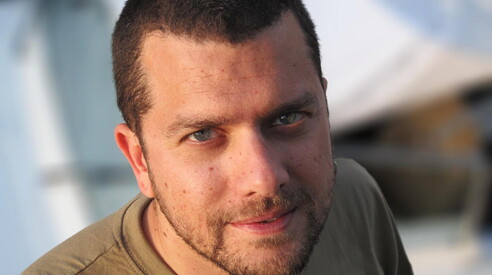Alberto Trentini remains in prison. What the rejected special envoy in Caracas did wrong?


Ansa photo
Free him
"The huge mistake was to publicly announce Luigi Vignali's mission to Venezuela without being certain that he would be received," says the Italian-Venezuelan journalist Salvatore Lo Monaco.
On the same topic:
"It was a huge diplomatic and strategic mistake to publicly announce Luigi Vignali's mission to Venezuela without being certain he would be received by the local authorities," Salvatore Lo Monaco, an Italian-Venezuelan journalist who moved to Italy eight years ago "due to the impossibility of continuing to freely practice journalism" in Venezuela, told Il Foglio. Lo Monaco was referring to the mission to Caracas of the Italian Ministry of Foreign Affairs' Director General for Italian Citizens Abroad and Migration Policies: Minister Antonio Tajani had tasked Vignali with working to free Alberto Trentini , the Italian aid worker detained since November 15 last year in Caracas' El Rodeo prison, but two days ago the special envoy was turned away by Venezuelan authorities. "This means that adequate lobbying was not carried out with key contacts," Lo Monaco argued. Yet there are several potential contacts in Venezuela who could build a bridge with Maduro to welcome him, including some Chavistas like Giancarlo Di Martino, who was Venezuelan consul in Milan for 15 years and is now the mayor of the city of Maracaibo. There are also several members of the Italian-Venezuelan Club in Caracas who maintain good relations with the regime.
Tajani, speaking to reporters at the Transatlantic yesterday, attempted to explain: "We are trying to work for the release of political prisoners. We sent an envoy who was also welcomed by the family, but it is the Venezuelan government that decides whether to hold a meeting or not. We are trying to do everything possible; it's not that simple." One version circulating is that Vignali received reassurances, but once he arrived in Caracas, the meeting was rescheduled for a couple of weeks due to internal Venezuelan leadership reasons. Another version is that a Venezuelan diplomatic official even treated Vignali rudely: "We are no longer in the colonial era." "Our son must return home. We trust that the dialogue can continue," Alberto Trentini's family said. The aid worker is still under arrest on vague charges, which have never been formally confirmed, of "conspiracy and terrorism," and in eight months he has only managed to speak to his family on the phone twice. The Trentini case is the best-known of the fifteen Italians and Italian-Venezuelans arrested for which Vignali's position was created.
"Current international relations with the regime in power in Venezuela are highly complex and unique," says Lo Monaco. "What exists is a de facto government, especially since last year they failed to provide official documentation to prove their announced victory in the July 28 presidential elections, while candidate Edmundo González managed to publish the minutes declaring him the winner. For this reason, even governments politically close to Maduro have not officially recognized his mandate, considering that the National Electoral Council, controlled by the PSUV party, has not yet published the minutes. Hence the international isolation on a geopolitical level, with some allies such as Russia, Iran, North Korea, China, and Cuba, among others." Therefore, "it is necessary to proceed with extreme caution in establishing channels of communication with the Venezuelan regime, more through informal channels than through official diplomatic ones. The same is true with international economic relations, which are neither transparent nor formal. Furthermore, currently in Venezuela there is not a single official interlocutor, but several. On one side are Maduro and his entourage, which includes the Rodríguez brothers. On the other, the vice president of the PSUV, Diosdado Cabello, Minister of the Interior, who manages the entire police and intelligence apparatus, and is primarily responsible for detentions and the repression of freedom. Also worth mentioning in this context is General Padrino López, Minister of Defense, whose term has been renewed over time and who, to date, is the longest-serving minister in Venezuelan history, which gives him considerable decision-making power over the armed forces that support the regime."
More on these topics:
ilmanifesto





